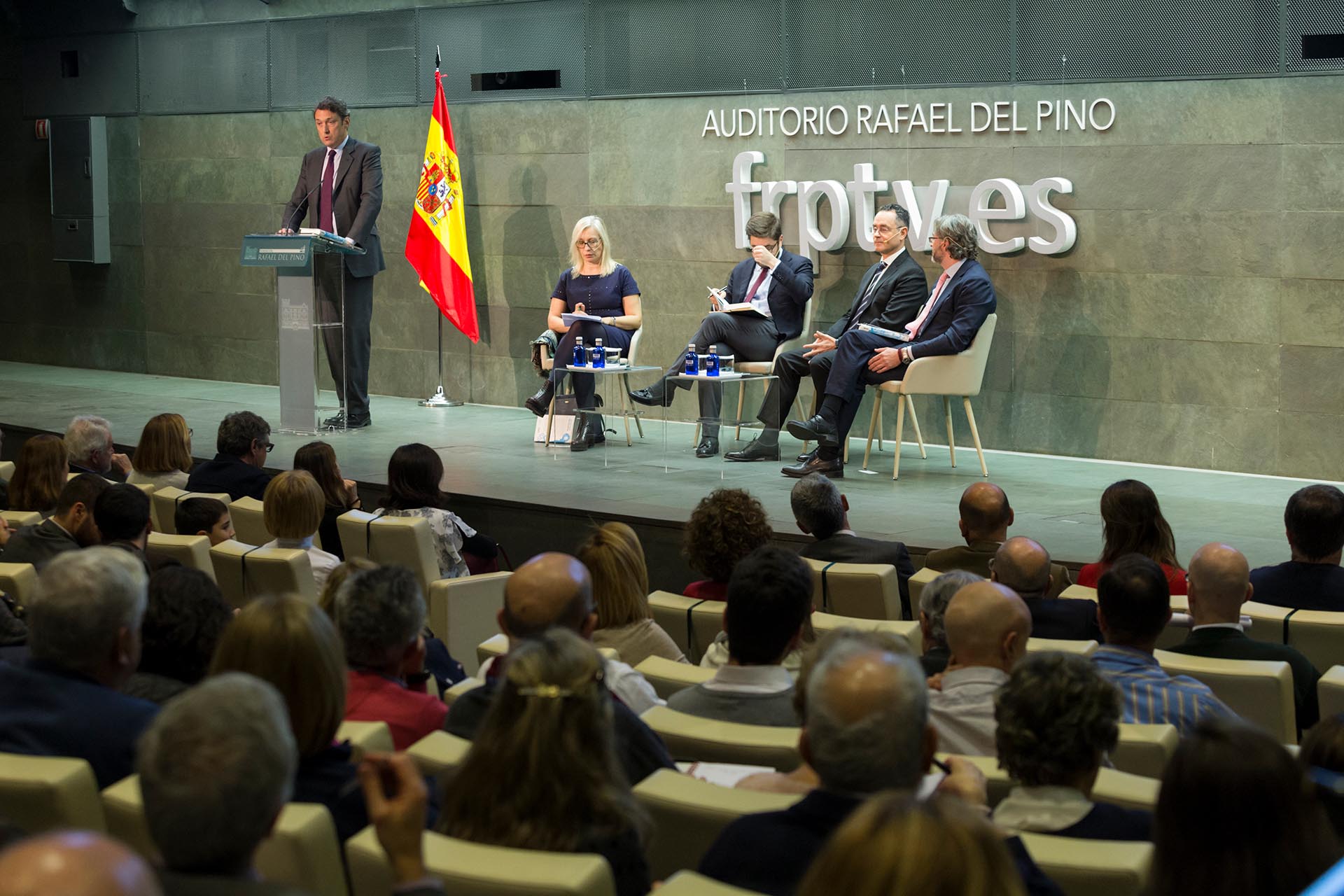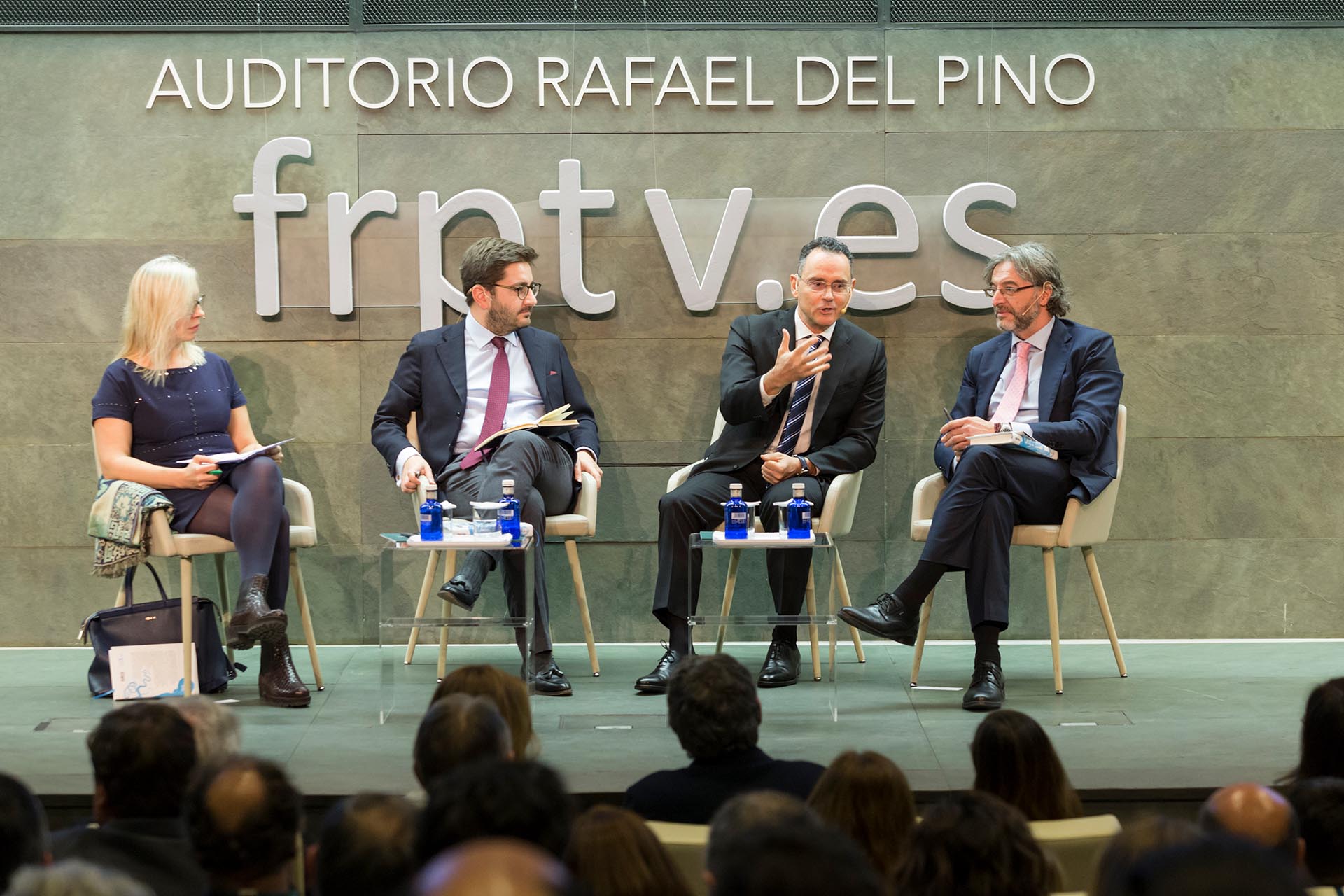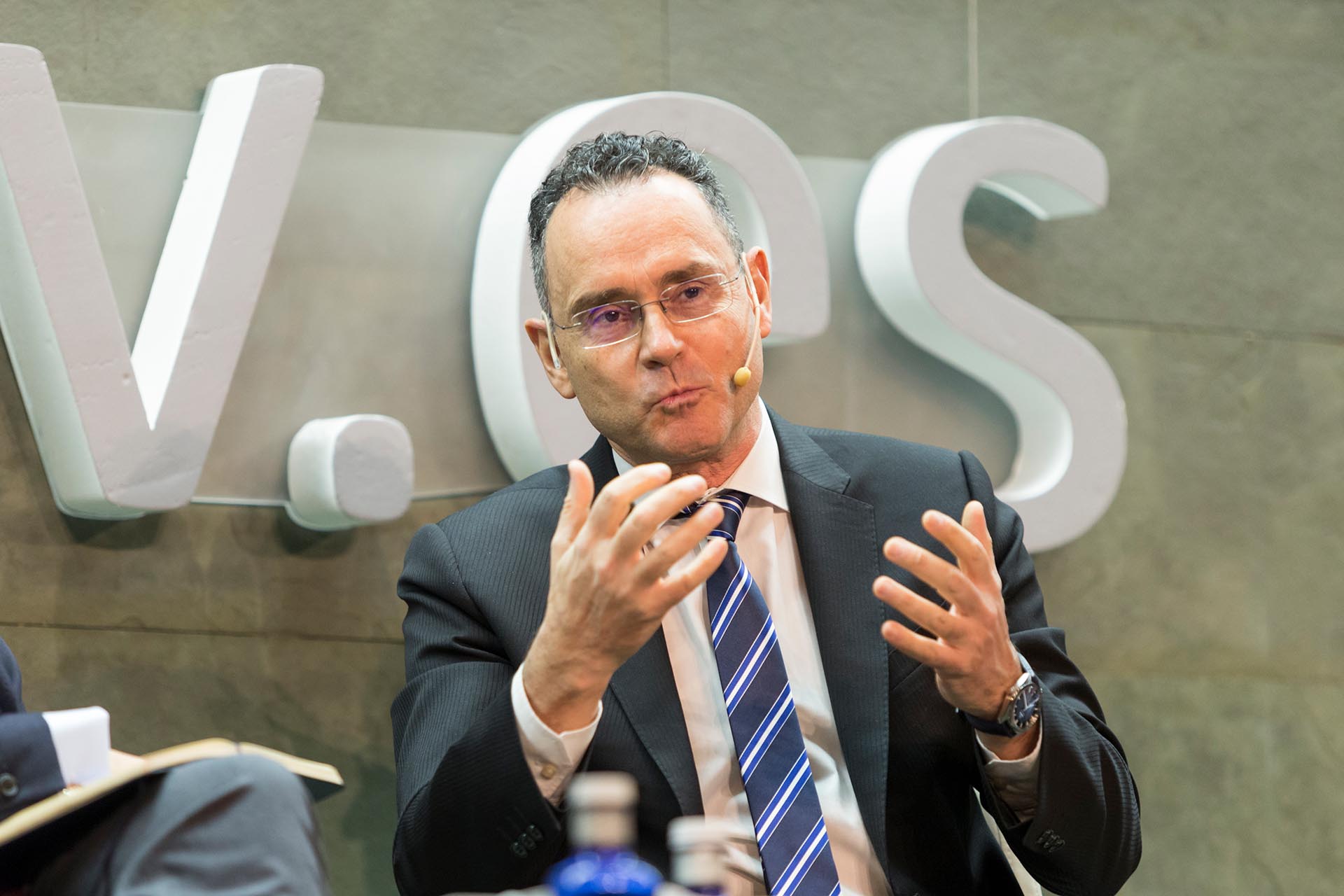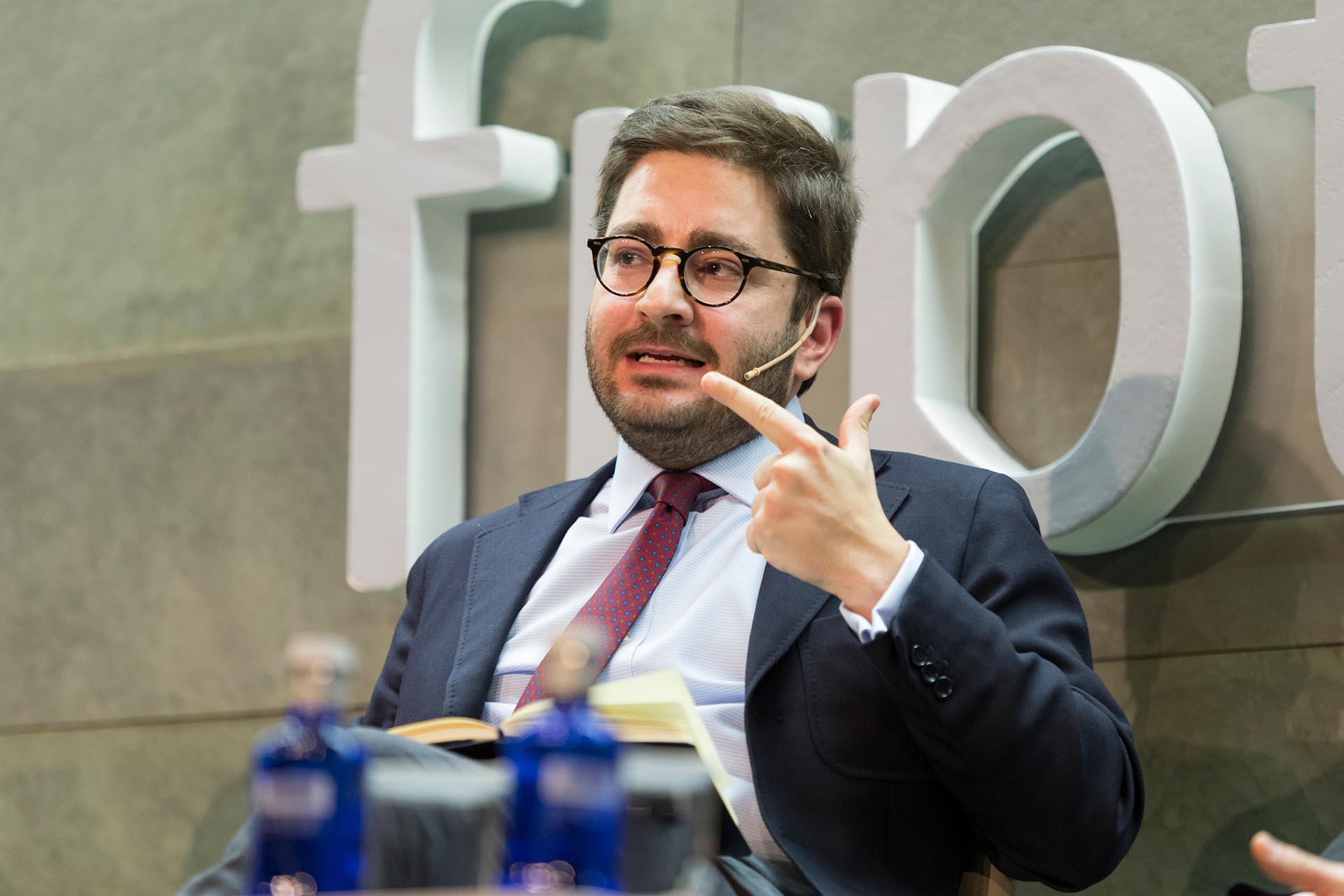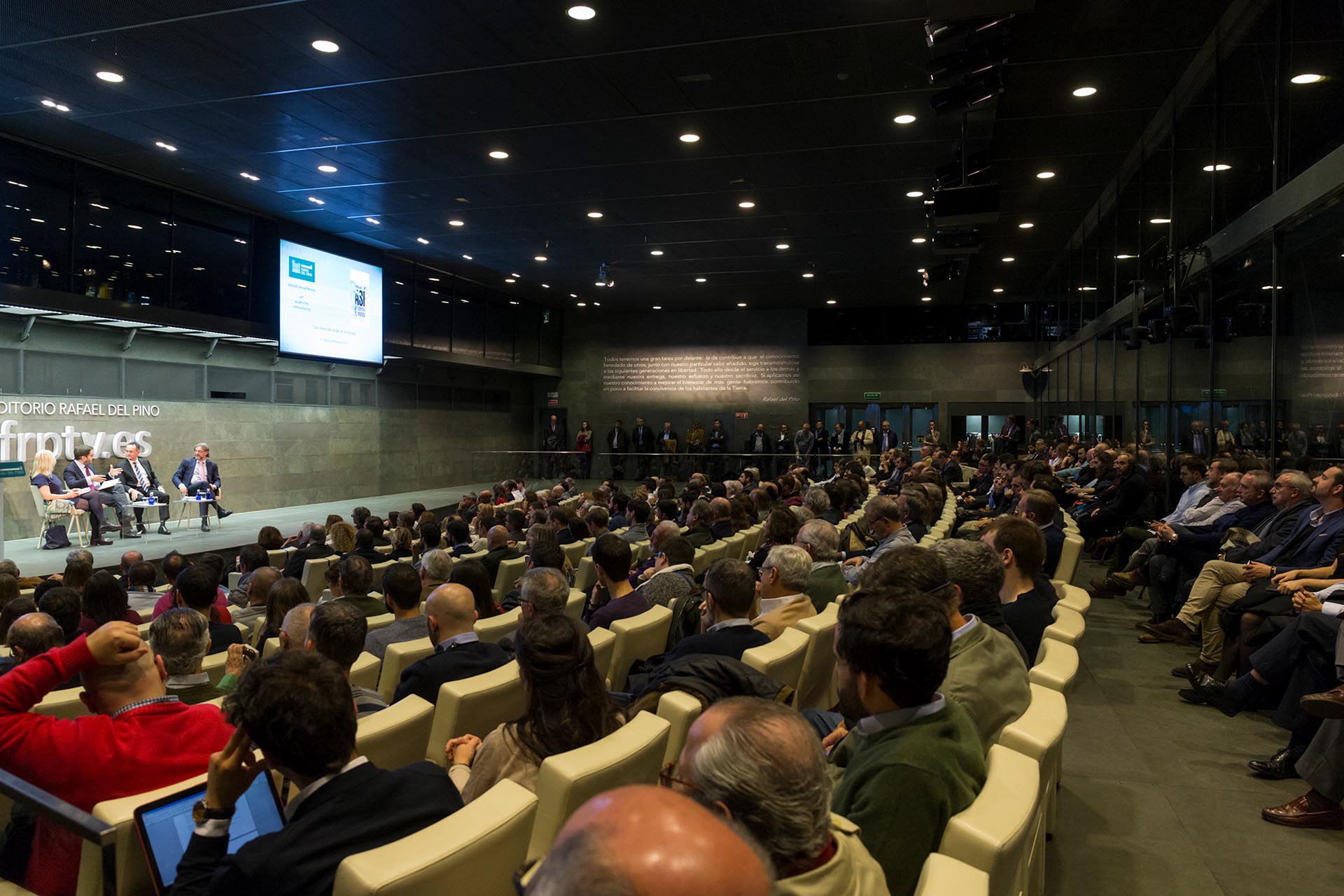Pedro Baños, Mira Milosevich, Juan Antonio Gómez Bule and Manuel Muñiz
Summary:
On the occasion of the presentation of the book "Así se domina el mundo", by Colonel Pedro Baños, the Rafael del Pino Foundation organised, on 11 December 2017, a dialogue in which, in addition to the author, Mira Milosevich, Senior Researcher on Russia and Eurasia at the Elcano Royal Institute, and Juan Antonio Gómez Bule, President of the Advisory Board of S21sec, participated. The dialogue was moderated by Manuel Muñiz, Dean of the IE School of International Relations and Rafael del Pino Professor of Global Leadership. Pedro Baños commented that his vision of geopolitics is based on power because military men, like him, are extremely realistic because they have lived through the reality of war. Moreover, he added, in Europe we live in a social reality that is not that of the rest of the world. The value that life has in Europe or in the United States is not the same as in other parts of the world. From all of this derives his particular vision of geopolitics. With respect to Russia, Baños pointed out that it is fundamental to understand history in order to understand peoples, since their idiosyncrasies are related to their history. By reading history, it was known how Russia would act in the case of Ukraine. Mila Milosevich reinforced this view by recalling what Catherine the Great once said, that Russia, in order to defend its borders, had to expand them. From this perspective, Russia perceives NATO's approach as a threat, but it also suffers from a syndrome of lack of natural borders and experiences from foreign invasions: the Mongols, Napoleon, Hitler. For Pedro Baños, the solution to the Russian issue is to understand the global context, with the United States in decline, China on the rise and Russia seeking to regain its former status. The solution with Russia is to recognise that status. For his part, Juan Antonio Gómez Bule referred to cybersecurity, the new battlefield in geopolitics. Its aim is to modify human behaviour, to generate beliefs that limit human actions. For him, the problem is to implement cybersecurity strategies. In this context, one must have strategies if one wants to be a dominant space, and have the budget to do so, since immediacy means that the social and political orders do not have time to digest the models. Spain lacks such a cybersecurity strategy. Therefore, it is necessary to invest in cyberdefence, as boycotts are fuelled by propaganda and counter-propaganda. In this sense, Mila Milosevich pointed out that while Europe lives in a post world, Russia believes in conservative values, in geopolitics, and subordinates the freedom of its citizens to its security. This is why it is active in the field of cybersecurity. However, however strong the disinformation, its reach depends on the target it is aimed at. The problem with Europeans is that these values of questioning everything and the rule of reason are turned against us when cybersecurity comes into play. Pedro Baños pointed out that disinformation has always existed. The difference is how it has been enhanced now through new technologies.
The Rafael del Pino Foundation is not responsible for the comments, opinions or statements made by the people who participate in its activities and which are expressed as a result of their inalienable right to freedom of expression and under their sole responsibility. The contents included in the summary of this conference are the result of the debates held at the meeting held for this purpose at the Foundation and are the responsibility of their authors.
The Rafael del Pino Foundation is not responsible for any comments, opinions or statements made by third parties. In this respect, the FRP is not obliged to monitor the views expressed by such third parties who participate in its activities and which are expressed as a result of their inalienable right to freedom of expression and under their own responsibility. The contents included in the summary of this conference are the result of the discussions that took place during the conference organised for this purpose at the Foundation and are the sole responsibility of its authors.
